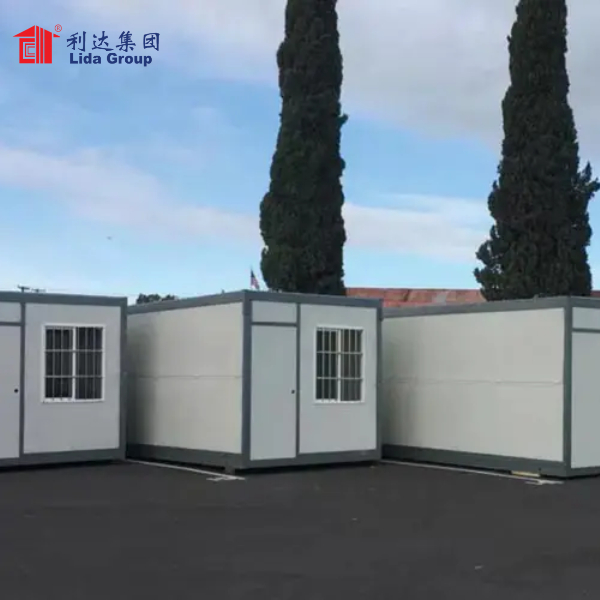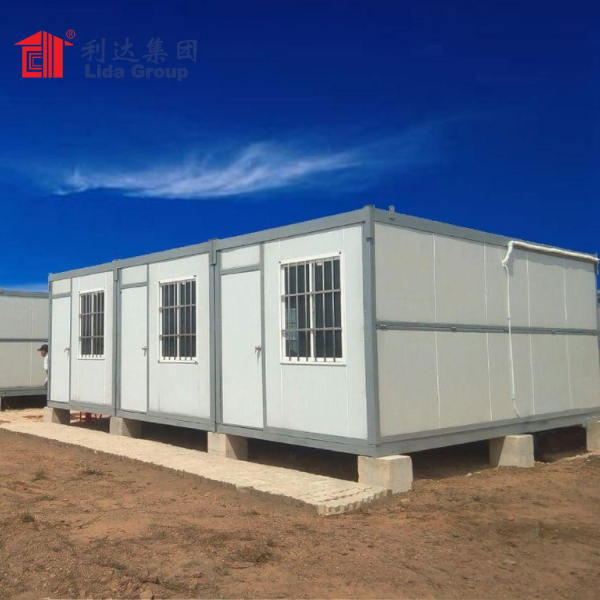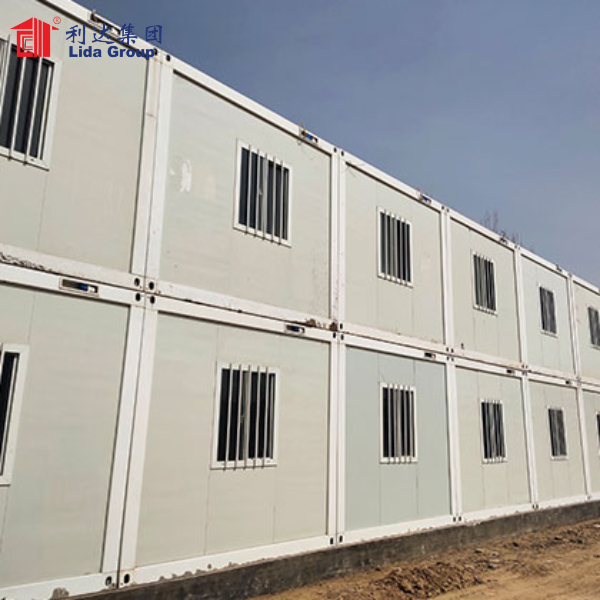Introduction:
In an era of increasing environmental awareness and the urgent need for sustainable solutions, Lida Group has emerged as a trailblazer in the construction industry with their eco-friendly container houses. These innovative structures combine the principles of sustainability, affordability, and functionality to provide individuals and communities with a sustainable living option. This article explores Lida Group’s commitment to sustainable living through their eco-friendly container houses.
- The Importance of Sustainable Living:
1.1 Environmental Challenges:
The world is facing numerous environmental challenges, including climate change, resource depletion, and pollution. Adopting sustainable practices is crucial to mitigate these challenges and preserve the planet for future generations.
1.2 Role of Sustainable Living:
Sustainable living encompasses lifestyle choices that minimize negative impacts on the environment while promoting long-term ecological balance. It involves reducing waste, conserving resources, and embracing eco-friendly alternatives.
- Eco-Friendly Container Houses: An Overview:
2.1 The Concept of Eco-Friendly Container Houses:
Lida Group’s eco-friendly container houses are built by repurposing shipping containers, thereby reducing the demand for new construction materials. This sustainable approach not only minimizes waste but also saves energy and reduces carbon emissions typically associated with traditional construction methods.
2.2 Sustainable Features:
Eco-friendly container houses incorporate several sustainable features, such as:
- Energy Efficiency: Lida Group’s designs prioritize energy efficiency through the use of insulation, efficient lighting systems, and renewable energy sources like solar panels.
- Water Conservation: Water-saving fixtures, rainwater harvesting systems, and greywater recycling are integrated into the design to minimize water consumption.
- Sustainable Materials: Lida Group sources eco-friendly and recycled materials for construction, ensuring a reduced ecological footprint.
- Waste Reduction: By repurposing shipping containers, Lida Group reduces construction waste significantly. Additionally, they implement waste management strategies to minimize on-site waste generation.
- Designing Sustainable Container Houses:
3.1 Passive Design Principles:
Lida Group incorporates passive design principles to optimize energy efficiency and comfort within container houses. These principles include strategic placement of windows for natural lighting and ventilation, insulation to regulate temperature, and shading elements to minimize heat gain.
3.2 Green Roof and Vertical Gardening:
Container houses can integrate green roofs and vertical gardening systems, promoting biodiversity, reducing stormwater runoff, and improving air quality. These features contribute to a greener and more sustainable living environment.
3.3 Bioclimatic Design Considerations:
Lida Group takes into account site-specific factors such as climate, wind patterns, and solar orientation to optimize energy consumption and create comfortable living spaces. This bioclimatic design approach maximizes natural resources and minimizes reliance on artificial heating or cooling systems.
- Advantages of Eco-Friendly Container Houses:
4.1 Reduced Environmental Impact:
By repurposing shipping containers, Lida Group’s eco-friendly houses minimize the extraction of new materials, reduce waste generation, and decrease carbon emissions associated with traditional construction methods.
4.2 Affordability and Accessibility:
Eco-friendly container houses offer an affordable housing solution. The use of cost-effective shipping containers and sustainable materials make these homes accessible to a wider range of individuals and communities.
4.3 Mobility and Adaptability:
Container houses are inherently portable and can be easily transported and relocated, providing flexibility and adaptability to changing needs or circumstances. This mobility feature also allows for the reuse of containers in different locations, reducing the need for new construction.
- Overcoming Challenges and Building Awareness:
5.1 Regulatory Considerations:
While the concept of eco-friendly container houses is gaining traction, there may be regulatory challenges related to building codes and zoning regulations. Lida Group actively engages with policymakers to advocate for supportive policies and regulations that promote sustainable housing options.
5.2 Public Perception and Awareness:
Changing public perception about container houses is essential for their widespread acceptance. Lida Group endeavors to raise awareness about the benefits of eco-friendly container houses, emphasizing their sustainability, affordability, and aesthetic appeal.
- The Future of Eco-Friendly Container Houses:
6.1 Technological Advancements:
Advancements in sustainable technologies, such as improved insulation, energy storage solutions, and smart home automation, will further enhance the sustainability and comfort of container houses.
6.2 Integration of Circular Economy Principles:
Lida Group aims to incorporate circular economy principles into their container house revolution. This involves designing for disassembly, promoting recycling and upcycling of container materials, and creating a cyclical and sustainable approach to construction.
Conclusion:
Lida Group‘s commitment to sustainable living is evident in their eco-friendly container houses. By repurposing shipping containers and integrating sustainable design principles, Lida Group has created a housing solution that addresses environmental challenges while providing affordable and functional living spaces. Through their innovative approach, Lida Group is paving the way for a more sustainable future, where eco-friendly container houses play a significant role in sustainable living practices.
Post time: Sep-26-2023



